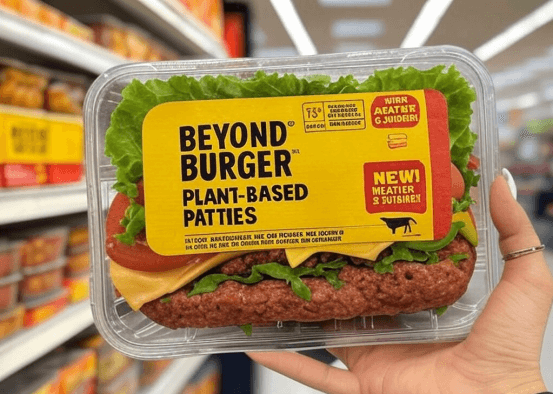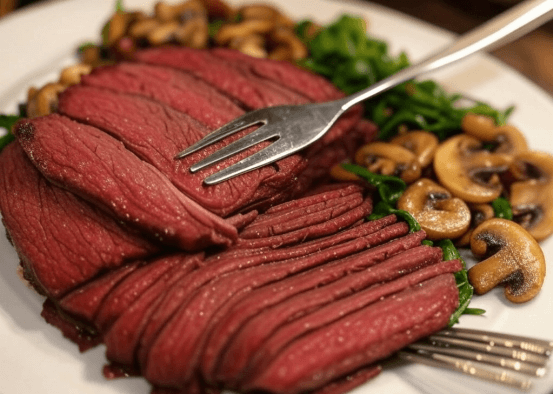Green Cuisine Plants Based Diets, Niche Plant Based Diets Grow During Adversity
One evening Anna was making dinner in the kitchen, stirring up a vibrant supper — grilled plant burgers, a rainbow of roasted vegetables, a walnut-studded salad. As an environmental scientist, she had spent the past year completely rethinking her diet in line with her values. “It was an experiment in the beginning,” she says, “but it turned into my way of living.” Her journey mirrors a global shift toward plant-based eating, driven by a mix of individual health necessity and planetary need.
One of her friends, David, was a vegan for 10 years, and he sparked her interest. While attending college David learned in a seminar that it takes as much water to produce 1 kg of beef as a family of four drinks in 6 months. That statistic — and pictures of rain-forestation cleared for cattle grazing — led him to give up meat overnight. “I knew my plate was a voting booth,” he says. “Every meal changes the world.”
Anna and David are not outliers by any means. All across North America, grocery carts are filling up with oat milk, lentil pasta and jackfruit “pulled pork.” Sales of plant-based products soared 19% in the first quarter of 2025, according to the Plant Based Foods Association, and hashtags like #PlantBasedLife and #VeganEating had 25% more hits on TikTok and Instagram. This isn't a food trend; it's a reconciliation with our culture over how we feed our bodies and the planet.
The Climate Wake-Up Call
The science is clear: The food we choose is heating the planet. According to the UN's Food and Agriculture Organization (FAO), livestock farming contributes 15% of the world's greenhouse gases, more than all the cars, trains and planes on the planet combined. Just cows burp methane, a gas that is 28x as powerful a greenhouse gas as CO2, and feed crops deplete water supplies and drive deforestation.
Plant-based diets flip this narrative on its head. A Beyond Burger, for instance, requires 99% less water and produces 90% less emissions than a beef patty. “It's not perfection,” Anna says. “Even to replace one meat meal a week reduces your carbon footprint.”

Health Meets Ethics
The argument for plant-based eating isn't just ecological; it's personal. In the landmark 2024 Planetary Health Study from Harvard, plant-rich diets reduced the risks for heart disease by 32% and type 2 diabetes by 28%. The advantages for David are visceral: “My energy shot through the roof, and my cholesterol dropped to athlete levels.”
But health alone does not tell the full story. According to a 2024 Ethical Eats Survey, 30% of Americans eat plant-based foods to ease animal suffering. “I can't unsee those factory farm videos,” says Marissa, a teacher in Los Angeles who became vegan in 2018, after watching Dominion.
From Niche to Norm
Plant-based eating was,10 years ago, grim tofu and sorry salads. It's a culinary revolution now. Walk into any Trader Joe's in the United States, and you'll notice:
*Cauliflower “wings” flying out of stores
*Starbucks Lattes: Oat Milk *Dairy Sales Charts
*Meat replacements competing for freezer space with meatless giants Beyond Meat, Impossible Foods
Social media fuels this boom. TikTok's #VeganChallenge videos have been viewed a total of 3.2 billion times, and influencers like Ella Woodward (@deliciouslyella) turn lentil loafs into viral sensations. Last week, “I posted a vegan lasagna recipe,” said the food blogger Priya Singh. “It got 50K saves in one night—people want change.”
Even fast food is pivoting. Its Impossible Whopper accounts for 12 percent of U.S. sales at Burger King, and KFC's plant-based chicken has blocked the streets around stores in Canada. “The taste is almost identical,” says Liam, a college student in Toronto. “I would choose this over real chicken any day.”
The Roadblocks
We have made progress, but challenges remain:
Expense: Yet, plant-based meats are still 20–30% pricier than animal products.
Access: In remote communities, vegan options can be hard to come by.
Misinformation:Common deficiencies in proteins surprise some, instead of studies that show that plant sources of amino acids support them well enough.
“We're fighting decades of 'meat-and-potatoes' culture,” says the chef and activist Bryant Terry. “But every time someone tries a killer vegan dish, those stereotypes melt away.”

The Future Plate
Innovation is accelerating. Start-ups like Perfect Day use fermentation to make dairy without cows, and Redefine Meat 3D-prints mists of plant-based steaks with marbling so realistic that even chefs can't spot the difference. Governments are in on the act, too: Canada's new 2025 Food Guide, for instance, emphasizes plants over meat, and California mandates climate labels on menus.
For Anna, the relocation appears inevitable. My niece asked why we ever ate animals. That's the generation that's going to survive it,” she says. As David puts it: “Sustainability isn't a trend, it's survival. “And it starts at the dinner table.' ”
